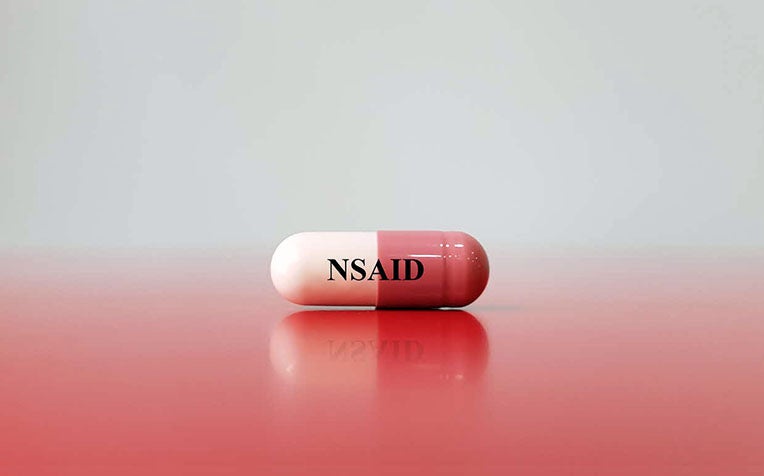
NSAIDs (short for non-steroidal anti-inflammatory drugs) , especially when used for long durations or in persons with kidney disease, should be used with care as it can lead to serious side effects.
Chronic kidney disease (CKD) is a growing health concern in Singapore. Based on the MOH National Population Health Survey 2022, CKD affects around 1 in 10 adults in the country.
The prevalence of CKD has been increasing steadily over the years, primarily due to factors such as aging population, rising rates of diabetes and hypertension, and lifestyle changes.
Non-steroidal anti-inflammatory drugs (NSAIDs) induced kidney injury is one of the many causes that can lead to the development of CKD renal problems.
"Proper use of NSAIDs is essential to minimise potential serious side effects, especially in patients with kidney diseases or those using them for prolonged period. Understanding how to use NSAIDs properly can help reduce the risk of kidney disease related to these medications," advised Renal pharmacists, from the
Division of Pharmacy at
Singapore General Hospital (SGH), a member of the
SingHealth group.
What are NSAIDs?
NSAIDs is a class of drug commonly used as:
Anti-inflammatory (to relieve swelling, redness and/or accompanying pain)
Analgesic (to relieve pain)
Antipyretic (to relieve fever)
While some are prescribed by the doctors, some NSAIDs are readily available over-the-counter at retail pharmacies or on online shopping platforms.
Over-the-counter NSAIDs include:
Oral formulation: Ibuprofen tablet and syrup, naproxen tablet, flurbiprofen lozenge, salicylamide tablet, aspirin* tablet
Oral combination drugs: Ibuprofen and paracetamol tablet
Topical formulation: Ketoprofen patch and gel, diclofenac gel, piroxicam gel, flurbiprofen patch (Pharmacy Only Medicine)
NSAIDs that are prescribed by doctors only:
Oral formulation: Celecoxib capsules, etoricoxib tablets, mefenamic acid capsules, diclofenac tablets, piroxicam capsule/tablet, ketorolac tablets, meloxicam tablets, aceclofenac tablets, dexketoprofen tablets
Injection formulation: Parecoxib, piroxicam, ketorolac
* If you are prescribed with low dose aspirin (may also be known as baby aspirin) for indications such as prevention of heart attacks or stroke, it is important for you to continue taking it unless advised otherwise by your doctor. Low dose aspirin is safe to use even in persons with CKD. |
5 tips to use of over-the-counter NSAIDs safely
Do not start oral NSAIDs on your own without consulting your doctor/pharmacist if you have CKD. This step is important for assessing your kidney function, reviewing potential drug interactions, and determining the choice of NSAID and dosage regimen.
Limit duration and dosage: Take NSAIDs at the lowest effective dose for the shortest duration possible to minimise the risk of kidney damage. NSAIDs should not be used long-term without medical supervision, especially in patients with CKD. Short-term use for acute pain or inflammation is generally safer than prolonged use or high-dose regimens, which can damage kidney function over time.
When you visit different healthcare providers, do highlight to them the medications, including over-the-counter medications that you are taking. This information allows them to consider potential interactions and choice of treatment to safeguard your kidney function.
Do not use more than one oral NSAIDs at the same time.
Inform your regular doctor during your next appointment if you have started or have taken oral NSAIDs
If you have other underlying conditions (e.g., gastric issues, heart conditions, liver conditions, pregnant or trying for a baby, breastfeeding, drug allergy, asthmatics) or over 65 years old, kindly consult your healthcare provider before starting on NSAIDs.
Effect of NSAIDs on the kidneys
In individuals with CKD, NSAIDs could potentially worsen kidney function by reducing blood flow to the kidneys, potentially leading to kidney damage or kidney injury. According to the US National Kidney Foundation, as many as 3% to 5% of new cases of chronic kidney disease each year may be caused by the overuse of these painkillers.
If NSAID is prescribed by a doctor, do not stop taking without consulting your doctor.
Safe painkillers for chronic kidney disease (CKD) patients
For patients with CKD who need pain relief, certain medications are
safer options compared to oral/injectable NSAIDs:
Paracetamol: This is often the first-line choice for pain relief in CKD patients. It is effective for mild to moderate pain and has minimal impact on kidney function when used at recommended doses. However, prolonged or excessive use can still pose risk to your health, so caution should be exercised when using in such situations.
Topical treatments: Creams, gels, or patches containing NSAIDs (e.g., diclofenac gel) may be applied directly at the recommended dosage to the affected area, reducing systemic absorption and minimising kidney-related risks compared to oral/injectable NSAIDs.
References:
Epidemiology & Disease Control Division and Policy, Research & Surveillance Group, Ministry of Health and Health Promotion Board, Singapore National Population Health Survey 2022 (Household Interview and Health Examination).
Ref: H24
Other articles you may be interested in:
Should You Self-Medicate for Pain Relief?
Crushing Pills Before Taking, Is It Safe?
Making Sense of Medication Labels













 Get it on Google Play
Get it on Google Play